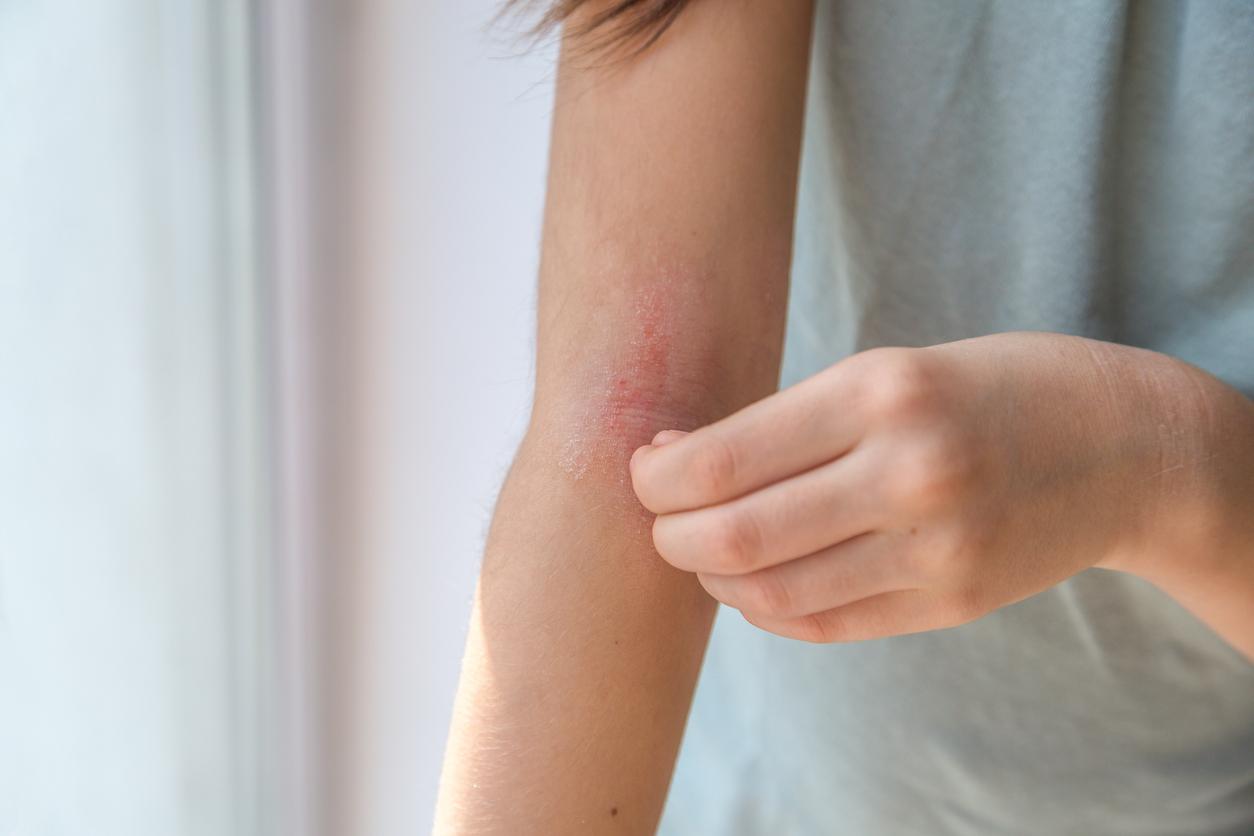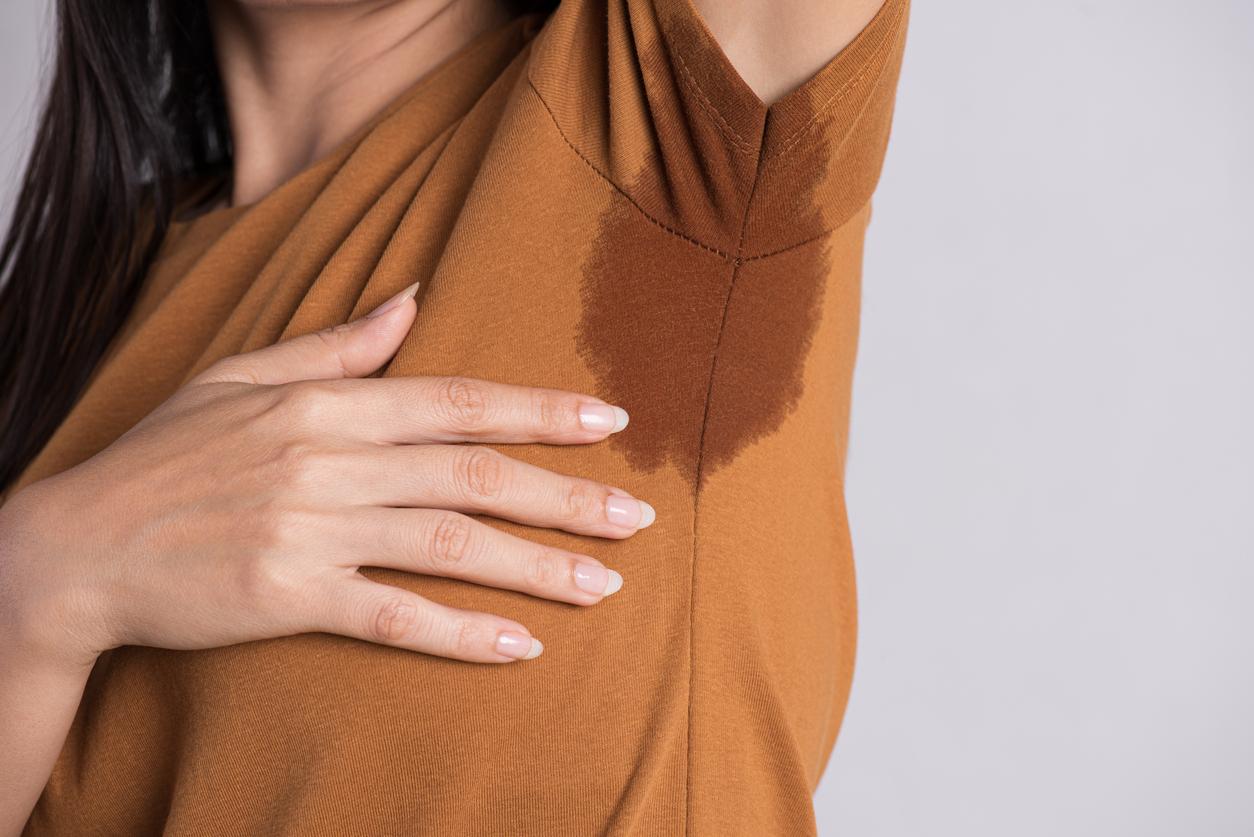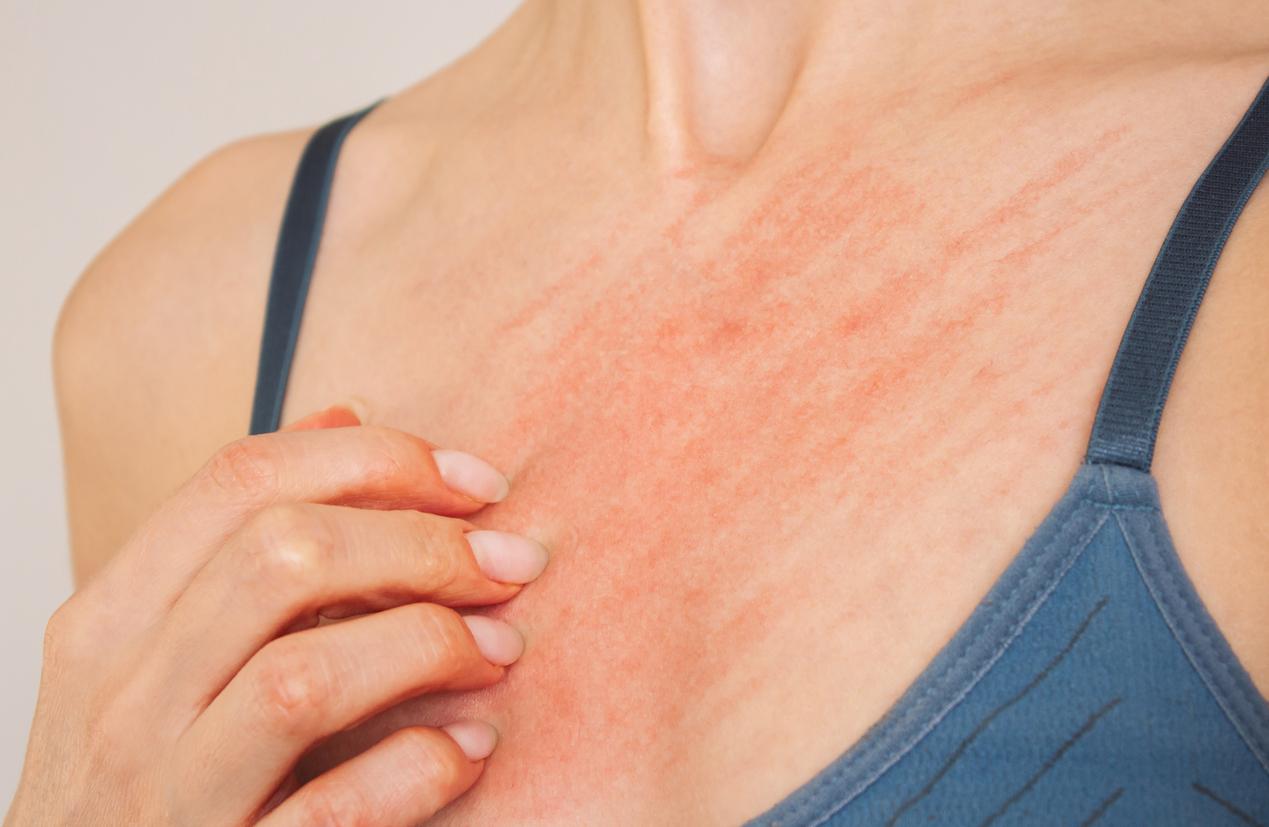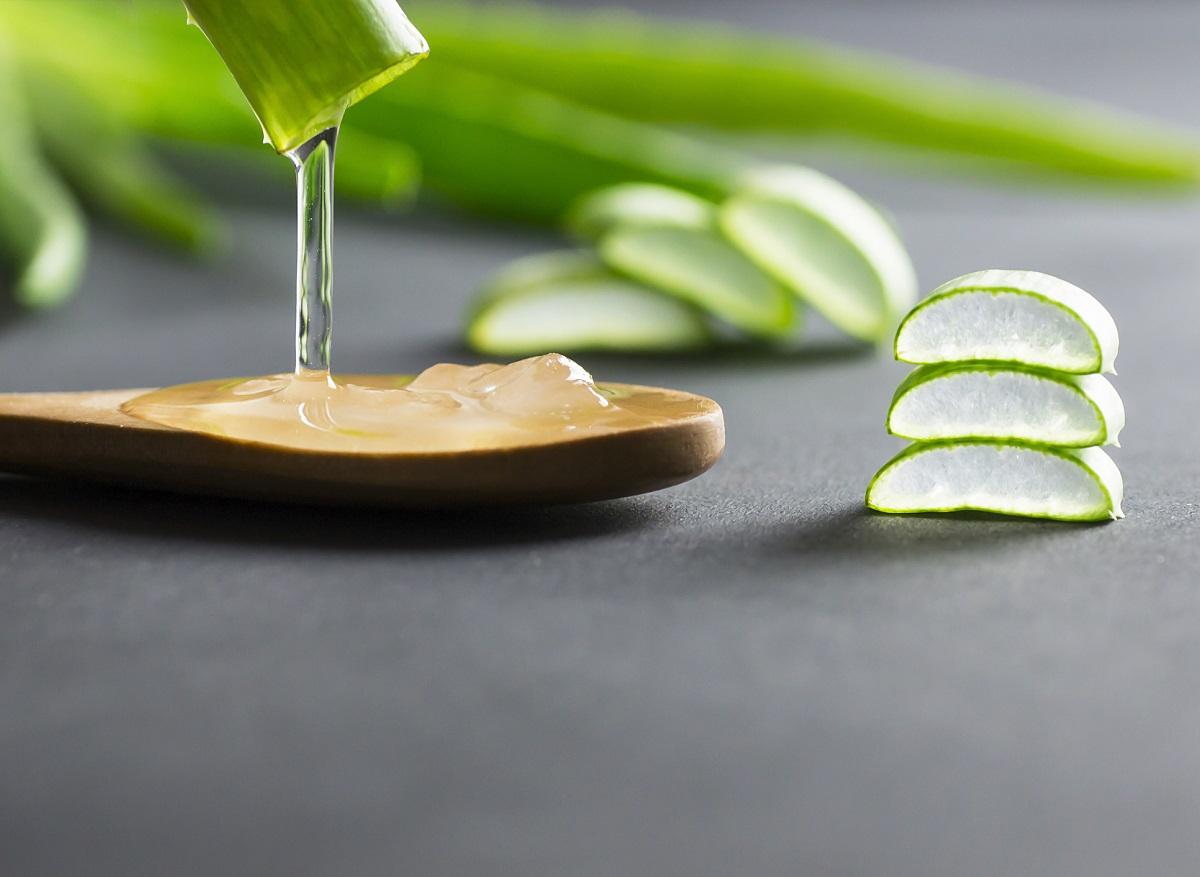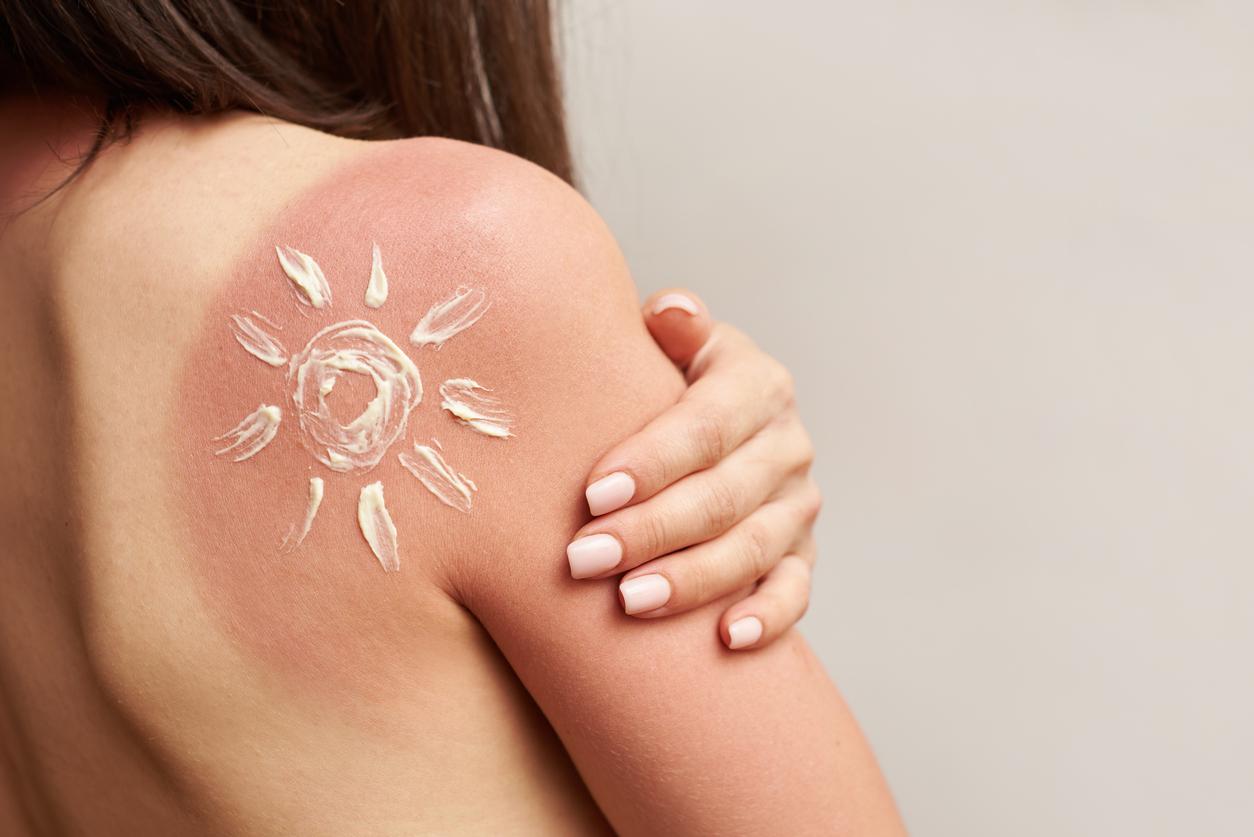Moderate, infected eczema heals as quickly with antibiotics as with treatment with corticosteroids and emollient creams.
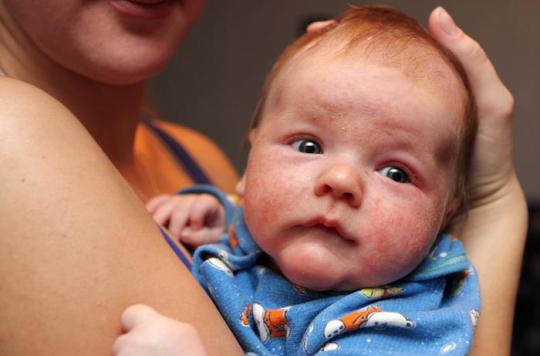
Antibiotics would not be useful for treating superinfected eczema, reports a study published in Annals of Family Medicine. Researchers at Cardiff University (Great Britain) indicate that 40% of children with this skin disease receive antibiotic cream or oral treatment to treat an infection. However, these drugs would do no better than emollient creams and corticosteroid ointment.
Infrequent infections
With 10 to 15% of infants affected, eczema, or atopic dermatitis, is one of the most common dermatological diseases in children. In toddlers, the lesions are mainly concentrated on the face, arms and legs. In older children, the attack is localized in the neck, folds of the elbow and knees, as well as the wrists.
Eczema can become infected because the child is scratching. Most often, the lesions are infected with Staphylococcus aureus, a bacteria naturally present on the surface of the skin. This complication of atopic dermatitis is rare, underlines the French Dermatology Society on its site dermato-info.fr. And in some cases, doctors prescribe antibiotic treatment, although there is little scientific literature on this subject.

Risk of allergy
Paediatricians at Cardiff University therefore wanted to assess their effectiveness. For this, they selected around 100 children with moderate infected eczema. About forty received the classic treatment with topical corticosteroids and moisturizers, and the others received, in addition, antibiotics (oral or cream). The evolution of the lesions was observed 15 days, 4 weeks and then 3 months after the start of the treatments.
Researchers’ analysis shows that antibiotic treatment, regardless of its form, did not do better than moisturizers and cortisone. The authors even note that the lesions resolved quickly in children receiving only usual care. “Our study suggests that even if there are signs of infection, children with moderate eczema do not benefit from antibiotics, and worse their use promotes resistance to antibiotics and increases the risk of allergy or skin sensitivity”, summarizes Dr. Nick Francis, the head of the work, adding that topical corticosteroids and moisturizers form the main arsenal to treat superinfected eczema.
Avoid infections
In addition, pediatricians and dermatologists point out that children’s nails should be regularly cut to avoid scratching lesions, which quickly become nests for microbes. They add that in case of perspiration and when leaving the water (bath, swimming pool, sea), the skin must be rinsed thoroughly and dried by dabbing with the towel.
For washing, prefer surgras soaps or scented shower gel. Finally, avoid attacking the skin by limiting contact with rough or synthetic fabrics, and wool. Better to use cotton or linen considered less irritating.
.








